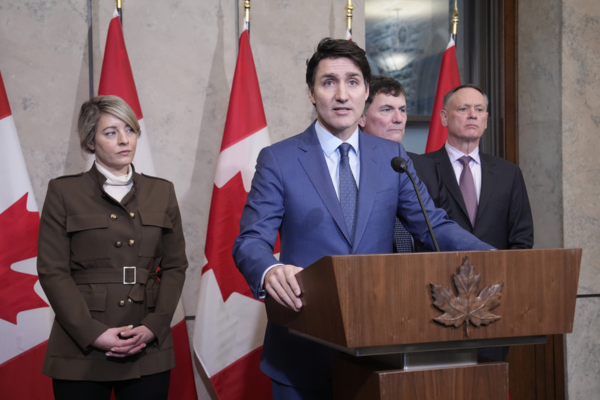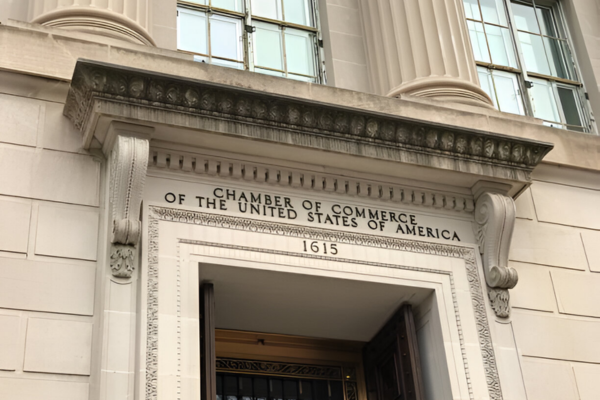The Stock Market Reacts to U.S. Trade Tariffs Uncertainty
The government-imposed U.S. trade tariffs are causing the world stock market to collapse. In reaction, markets such as the Nasdaq, S&P 500, and Dow Jones have displayed volatility. As the economic damage develops, investors continue to be on edge as reported.
President Trump’s most recent trade penalties focus on imports from China, Mexico, and Canada. Although the program aims to safeguard domestic companies, worries about economic reprisals still exist. The strain is being felt by markets around the world.

Credits: politico.com
Dow Jones and S&P 500 Face Turbulence
The Dow Jones Industrial Average saw sharp fluctuations following the tariff announcement. At the market open, it dipped over 500 points before rebounding slightly. Investors fear supply chain disruptions and rising costs for U.S. businesses.
The S&P 500 and Nasdaq also felt the pressure. Tech stocks, reliant on international components, led the decline. Many analysts predict further instability if U.S. trade tariffs escalate tensions.
Quick reminder: Must read – Oscars 2025 Winners: A Night of Triumphs and Surprises
The Global Ripple Effect
These tariffs aren’t just affecting U.S. markets. Canada, Mexico, and China have signaled potential countermeasures. If enacted, these could disrupt major industries like automobiles, agriculture, and manufacturing.
Canada, a top U.S. trade partner, has expressed disappointment. Prime Minister Justin Trudeau stated that retaliatory measures are under review. Mexico, another key ally, is weighing its options.
The Risk of a Trade War
A worldwide trade war might be sparked by ongoing U.S. trade tariffs, according to economists. According to the Wall Street Journal, protracted hostilities may cause the global economy to decline. Due to the interconnectedness of global supply networks, disruptions in one area affect economies worldwide.
The possibility of increased consumer pricing is another point of emphasis for experts. Businesses may pass on higher manufacturing costs to customers if tariffs are imposed. Decreased purchasing power and inflationary pressures could result from this.
Investor Strategy Amid Market Uncertainty
Caution is advised by financial analysts. Important tactics include diversifying portfolios and keeping a careful eye on market developments. While short-term traders should brace themselves for turbulence, long-term investors might see purchasing opportunities.
Bonds and gold, which are frequently seen as safe-haven investments, have become popular. Because markets respond erratically to political events and U.S. trade penalties, many investors seek security.
The Future of Trade Relations
As diplomatic talks continue, markets await clarity. Trade negotiations could ease investor fears if compromises are reached. However, prolonged uncertainty may further destabilize global economies.
For now, the U.S. stock market remains on high alert. Investors, policymakers, and businesses alike will closely monitor developments in the coming weeks.





